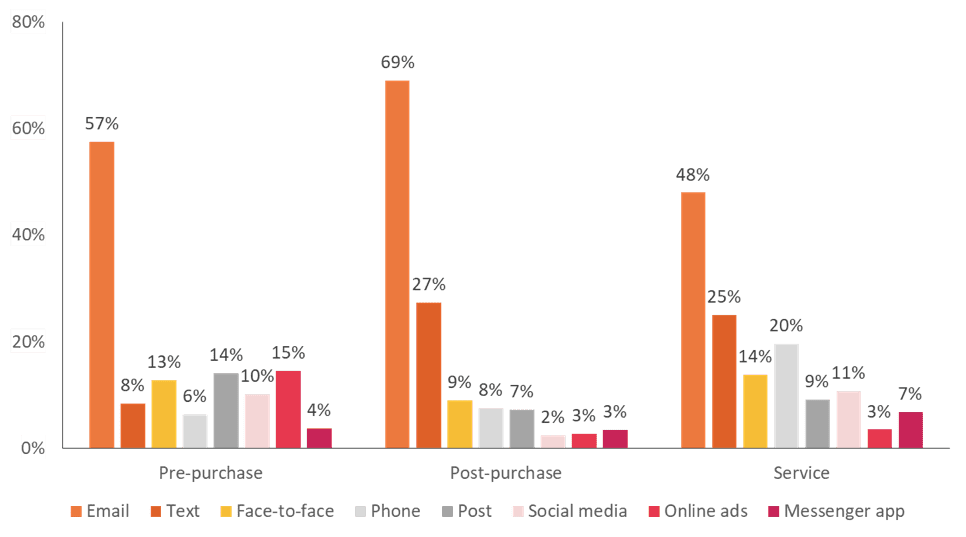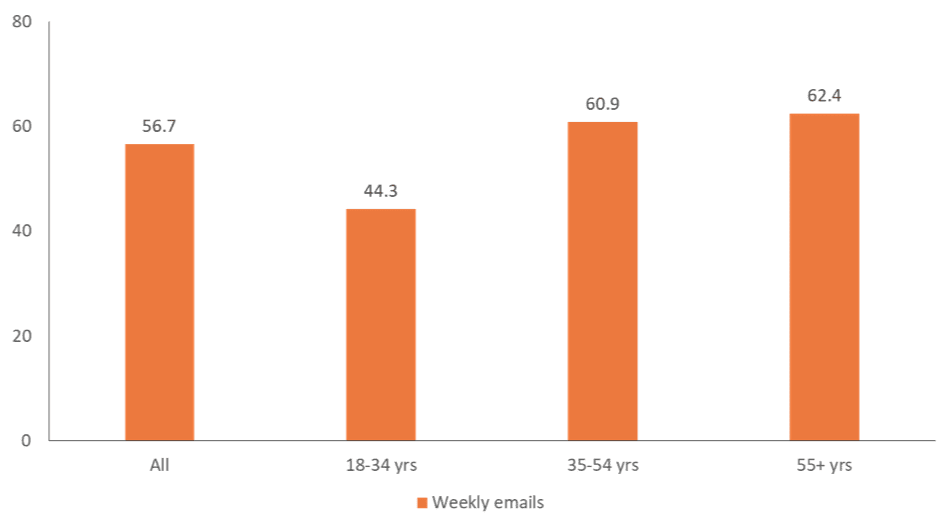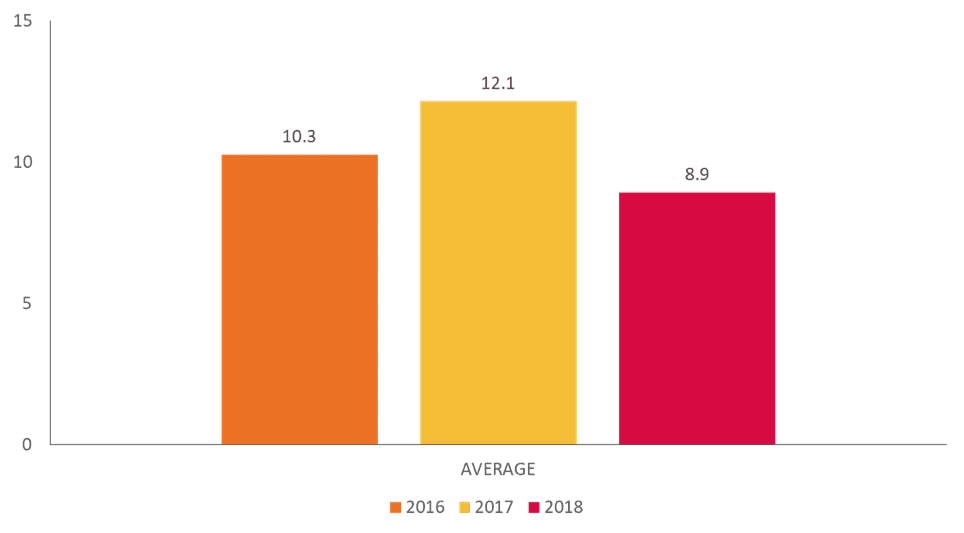The DMA’s head of insight, Tim Bond, discusses why its research points towards the GDPR having a positive impact on the relationship between consumers and brands
Consumer behaviours and preferences are constantly evolving, alongside the rapid pace of technological change. In particular, 2018 saw a number of significant changes to this landscape, not least the prospect of Brexit and new laws governing how marketers go about their daily lives.
For these reasons, it was a timely opportunity to see how recipients of our marketing emails feel about the channel as part of the latest 'Consumer email tracker 2019' report. In an age of innovation and change, one of the most encouraging findings was that email remains central to how customers engage with brands across the countless touchpoints now available to them.
Download our Premium Resource – GDPR and ePrivacy briefing for marketing professionals
In this report we cover the latest examples and discussion on both of these regulations which seeks to improve transparency and the effectiveness of data protection activities.
Access the GDPR and ePrivacy briefing for marketing professionals
Email remains the digital passport and is increasingly becoming an omnichannel passe-partout. In fact, no matter the context, consumers prefer to hear from brands via email, with 59% of them saying so in this year’s study. Looking further into the context of these findings, there is some variation within these preferences. While email remains the preferred channel, for pre-purchase messages, online ads (15%), post (14%) and face-to-face (13%) are the other favoured methods. In contrast, for post-purchase, the primary alternative is text (27%).

For customer service communications - where email is at its relative lowest (48%) - consumers also like text (25%), phone (20%), face-to-face (14%) and social media (11%). Ultimately highlighting the importance of email as the central channel around which an omnichannel approach to every customer touchpoint can then be built.
GDPR is having a positive impact on consumer opinions of brands
The consumer perspective
Despite the challenges that the General Data Protection Regulation (GDPR) may have brought to marketers and their organizations, it has clearly had a positive impact on consumers. Two in five (41%) of consumers we surveyed said the new rules have made them more confident about how brands treat their personal data and that they find themselves far less likely to question where brands got their email address.
Furthermore, when asked about how companies get their email addresses, fewer people are unsure how brands got their email addresses than a year ago – falling significantly from 43% to 33%. This is particularly felt among younger consumers – with just 22% of 18 to 34-year-olds often wondering. While the majority of this concern appears to come from those over 55, with 45% often questioning it.
More opportunities for brands and their marketers
The new laws around sign-up may well have had an impact here, both through improved transparency and allowing consumers to make a more deliberate decision. In the long-term, we’d expect this to benefit brands as customers have a better understanding of the ‘value exchange’ when signing up.
UK consumers demonstrate a growing interest in a range of incentives for data sharing, particularly personalization, recommendations and access to exclusive events/content. For example, the 'Data Privacy: What the consumer really thinks' report indicated that the number of people who claim they would be more likely to exchange their personal information in return for personalized products or services has risen from 26% in 2015 to 34% in 2018. In addition, the number of people who would be more likely to exchange data in return for personalized brand recommendations has increased from 20% in 2015 to 31% in 2018.
By increasing the relevance and usefulness of the messages consumers receive, marketers can look beyond simply offering discounts or freebies. A combination of incentives and effective engagement techniques are best to build long-term relationships with customers - something we investigated further in our 'Customer Engagement 2018: How to win trust and loyalty' report.

It isn’t just consumers who are observing the benefits of the post-GDPR era. As part of our recent 'Data privacy – An industry perspective' report, we found the number of marketers who believe the long-term benefits to their business will more than make up for the cost of complying with the GDPR has doubled from 16% in April 2018, to 32% in September. With those believing the effect will be negative has dropped from 56% to 41% over the same period.
What could be causing this shift in consumer attitudes?

Email frequency on the decline
This year saw a marked reduction in the number of emails consumers believe they receive each week to their personal inboxes, with the average falling from around 73 a year ago to just 57 emails in 2018. This estimate includes both marketing and non-marketing messages received by consumers, so it may be that some personal communications are moving to other platforms – such as the range of instant messenger services that are now freely available.
Another possible explanation may be the increased availability of more sophisticated inbox management features, which can create the perception that fewer emails are being sent with lighter inboxes as the main result. For example, the automated moving of promotional or transactional email to a specific tab or within a group.
However, a reduction of over two emails per day is still significant and suggests that the GDPR may have had a perceived impact on customers’ inboxes too.
Consumers have more control
In addition, customers’ estimation of the number of brands they're signed up to receive emails from saw one of the most marked changes year-on-year, falling by more than a quarter. A possible explanation could be a feeling that they actively opted out or unsubscribed from a number of these during the media coverage surrounding GDPR during the implementation phase. This was also notable for its apparent focus on ‘consent’, largely ignoring the opportunity for marketers to use ‘legitimate interests’ as a legal basis for contacting customers.
This year, customers estimated this figure at 8.9 brands on average, down from 12.1 in 2017 and 10.3 in 2016. Linking this to earlier analysis about the number of emails consumers believe they receive to their personal inboxes. This would then equate to receiving 2.8 emails per brand they’re signed up to per week.
It’s also important to note that these figures and that of the number of emails consumers receive are always an estimate from the customer, rather than an absolute truth. As such, the decline indicates a clear feeling that people are more in control of the emails they’re receiving – a positive sign for marketers.
The journey has only just begun
The DMA’s post-GDPR research reports, targeted at both consumers and marketers, all seem to indicate that the GDPR has had a positive impact on the relationship between customers and brands – especially in terms of attitudes towards email marketing. They also highlight how, despite this new regulatory environment, the keys to successful customer engagement remain consistent.
Creativity and innovation are the keys to providing customers with the relevance and usefulness they demand. Whether it’s creativity of thinking, innovative use of data, or the content created to engage customers, brands that are able to do this will be the ones that will gather more attention and loyalty through their marketing channels and campaigns.
Email remains an integral form of communication between brands and their customers, perhaps even being the central marketing channel that others in the campaign can be built around. However, it is fundamental that marketers combine convenience and relevance when targeting consumers, building relationships based on transparency and trust. GDPR has been a step in the right direction, but it’s a journey we must all continue on together.
Thanks to Tim Bon, head of insight at the DMA for sharing his thoughts. A social scientist by training and a communications professional by trade, Tim now combines these two fields in his role within the DMA group. He has an MA in Sociology from Aberdeen University and over the last decade, he has continued to utilize this social sciences background to develop research campaigns across a range of sectors. A key part of his role at the DMA is developing actionable insight for the data-driven marketing industry, which also supports the association’s core belief in putting the customer first and leading the business sector in creativity and innovation.










